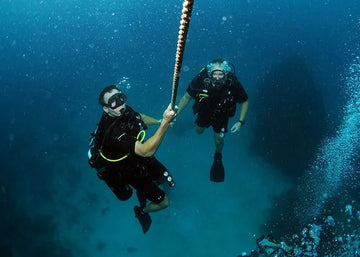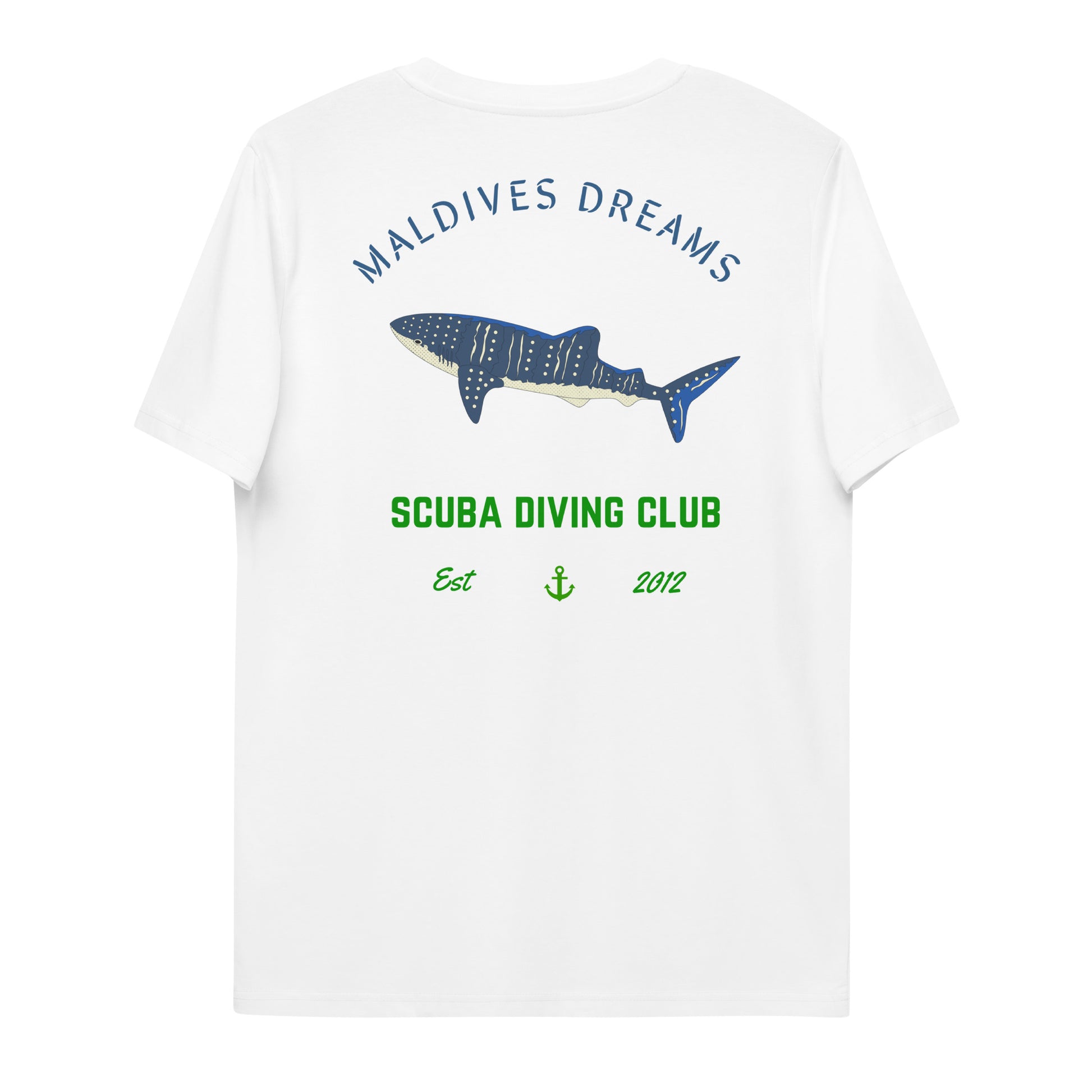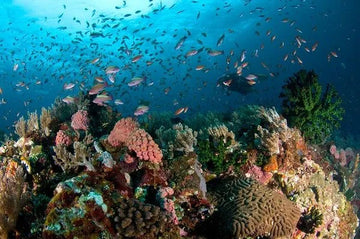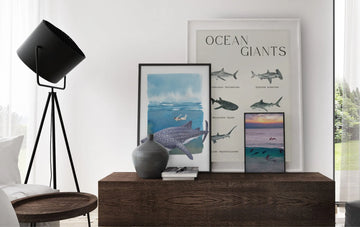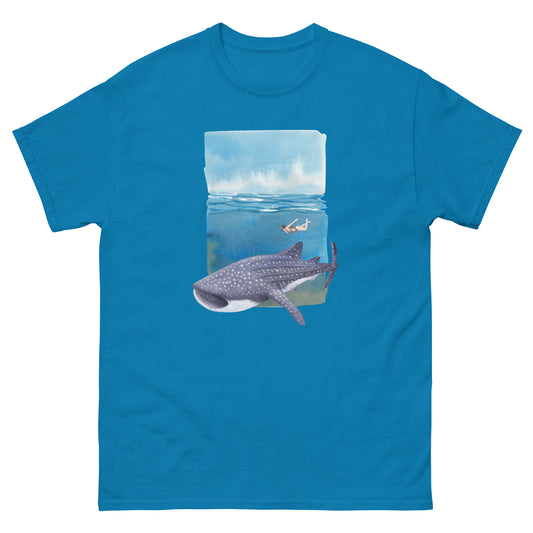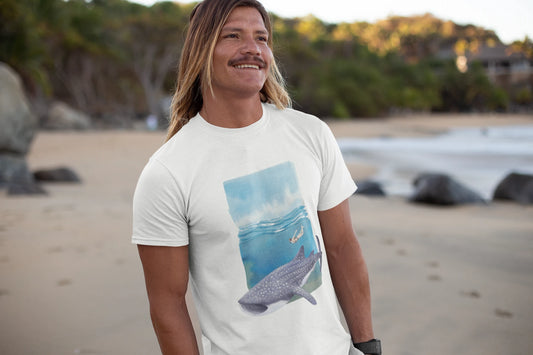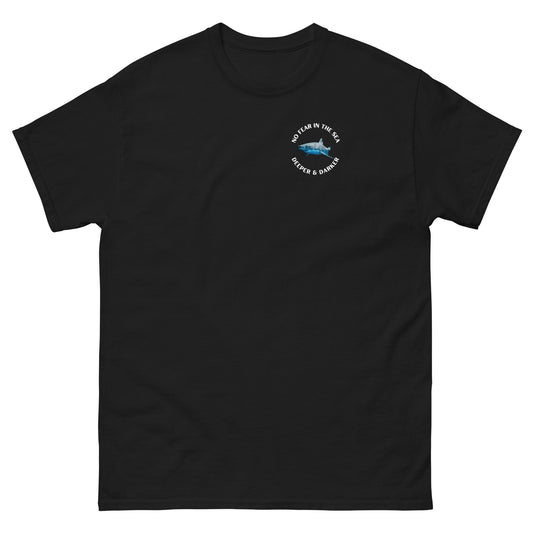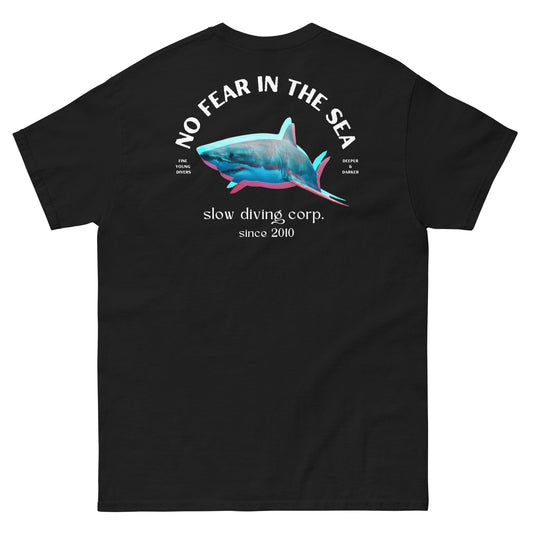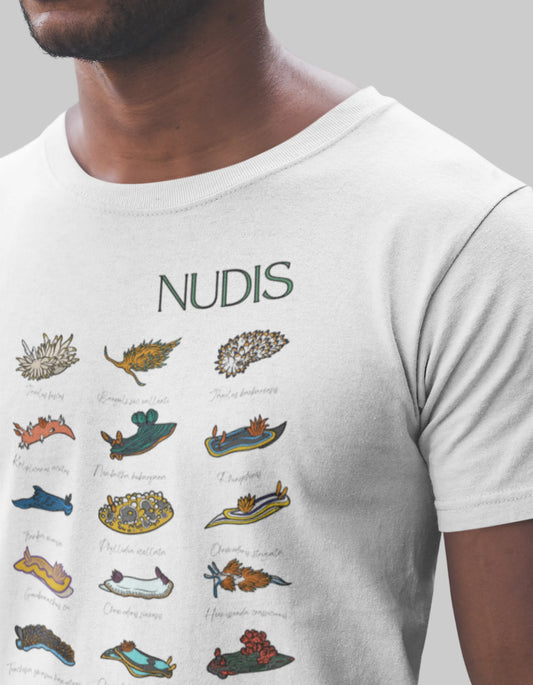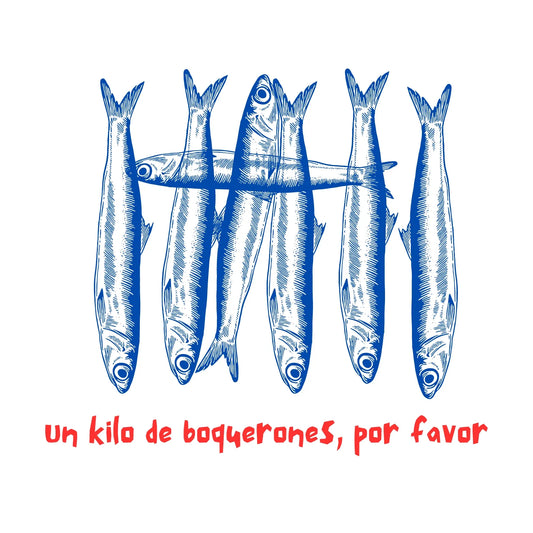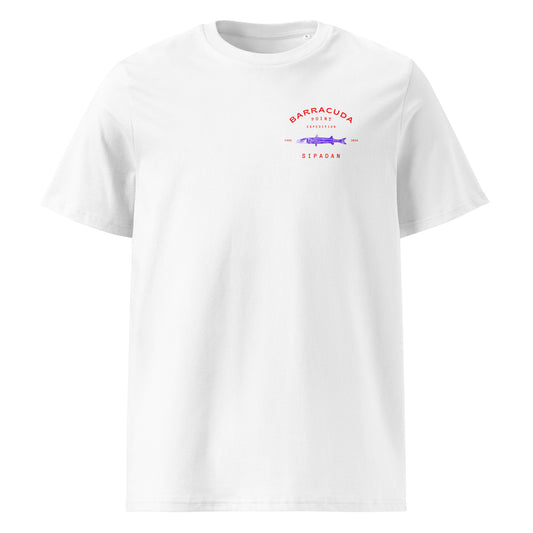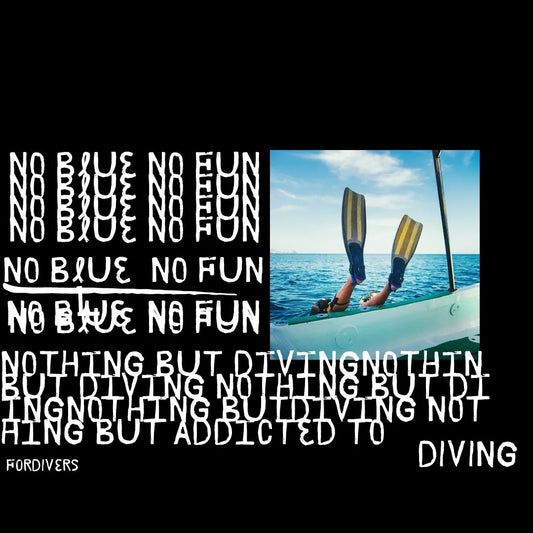Worldwide there are only about 90 diver deaths a year reported. Taking the United Kingdom as an example as they have done lots of safety analysis thanks to the BSAC, 17 British divers died in 314 accidents, compared to 122 cyclists who died in the same period. One last fact, fewer than 1,000 divers worldwide require recompression therapy each year, paltry when compared to the nearly 1 million new divers that PADI certifies each year.
T-shirts designed by divers for divers
VIEW MORE T-SHIRTS FOR DIVERS
It is true that spending 30 minutes at 20 meters deep may appear dangerous to the uninitiated, but those who have dived know that, doing things right, the risk is small. Nonetheless, when you dive you go out to a hostile environment where you can drown or suffer other accidents that may be fatal in some cases, so, the only way to make diving is a safe sport is by following a series of steps that will eventually become routine.
These 30 tips are aimed to those who are starting to dive, but it is worth to take a look at them even if you’ve put 200 times your regulator on.
1. DON’T DIVE ALONE
This is possibly the most important issue regarding scuba diving security: never dive without a partner, diving is a team sport. You may have seen a diver, usually underwater photographers in closed environments such as marine parks, diving alone. Yes, there are people who do it, but it is not recommended and even less so if you are learning to dive. It does not matter if it is an easy dive or if you have dived it 100 times. Never under any circumstances should you dive alone.
2. CHECK EQUIPMENT BEFORE ENTERING THE WATER
In the Open Water course you should have been taught how to wear your scuba gear and make sure it works properly. It’s something you have to do on every dive: verify that the diving gear is properly working on your buddy and make him to check yours (buddy check). In diving the buddy system is important while diving but also when out of the water.

3. DON’T DIVE IF YOU FEEL SICK
Do not worry about what your buddy might say or about ruining the illusions you had to take that incredible dive, nor that you have paid the hotel, or thinking you throw money away. Your body knows more about sports medicine than yourself and will tell you when you should not dive, listen to your body. Diving while feeling bad can make you hate scuba diving.
4. LIMIT THE DIVE DEPTH TO THAT OF THE LESS EXPERIENCED DIVER IN THE GROUP SHOULD DIVE TO
If the certification of the least experienced diver says that he cannot dive beyond 21 meters, that is the maximum that you must dive, everything has a reason. If cave-diving requires a special certification is to get you more money, it is needed additional expertise to perform dives safely. Take your time, learn to dive, and as in the video games of our childhood, unlock levels with effort and dedication.

5. ALWAYS TOGETHER
If the visibility is poor stay less than 2 meters away from your partner, if it is good don’t go further than 5 meters. If you have a problem with your air supply you will see that five meters underwater is a very long distance.
6. DO NOT DIVE IF THE SEA CONDITIONS ARE BAD
If you see on the surface that sea conditions are bad, do not dive. It can get worse when you’re down and complicate things afterwards. The weather can even get worst when you get out of the water complicating things further.
7. CHECK THE WEATHER
Specially if you’re diving from a boat, make sure that both the weather and the current conditions are suitable for diving and you are equipped to, for example, dealing with strong currents.

9. DO NOT DRINK AND DIVE AND IF YOU HAVE NOT SLEEP ENOUGH DO NOT GET IN THE WATER
Alcohol is one of the greatest enemies of a diver. If you drink or you did quite a lot the night before and have a hangover, leave diving for tomorrow. Diving requires all your senses to be alert. If you do not get enough sleep do not dive, you need to be in perfect condition for scuba diving.
10. PLAN THE DIVE
As simple as “Plan the dive, dive the plan”, applicable especially if it’s a difficult or deep dive. There is never enough planning and is vital to dive safely.
11. ALWAYS TAKE YOUR DIVE KNIFE WITH YOU
As we already have written in a previous post, the dive knife is necessary (compulsory in some places) when go underwater. Be sure to take at all times with you and make sure it is very sharp and will not fall off during the dive.
Hoodies Designed for the Deck of Your Liveaboard
SEE MORE SWEATSHIRTS FOR DIVERS
12. CHECK ALL YOUR DIVE GEAR BEFORE A TRIP
At least one week before a diving trip check that all your diving equipment is functioning properly, your flashlight and dive computer have batteries and your regulator has been through the shop if you have not you checked it during the last year. Some things are hard to find away from home and sometimes even on a liveaboard some last minute problems cannot be solved in place.
13. CHECK THE WATER TEMPERATURE
It is important that you notice of the water temperature at all times of the year to see what kind of diving suit you will wear in each dive. Leave the dry suits for dives with waters less than 10 ºC and from there your experience will tell you if you have to use a 7 mm wetsuit, a 5 mm and a hood (remember that through your head you lose a lot of heat), one of one or two pieces, with or without undershirt… Diving being cold or hot is quite uncomfortable and can complicate the dive.

14. ALWAYS CARRY A MARKER BUOY
Many diving accidents are caused by skippers who do not respect divers by hitting boats that can cause serious injuries. You are more fragile than the hull of the boat, do not expect the boats will always be careful and can see you. Always carry a buoy to indicate where you are and whenever you can and be well planned, leave the water as close as possible to your boat.
15. DO NOT EAT TOO MUCH, DO NOT DIVE BEING HUNGRY
Eating too much before a dive will make you feel drowsy and will worsen your ability to react to a potential problem. You should not starve either, keep in mind that you need to be in good physical condition to practice any sport and in order to dive you’ll have to carry your gear, flap and should you need to help your partner you will surely miss not having enough strength.
16. LOOK AT YOUR GAUGE CONSOLE
Although it may seem incredible, many accidents are suffered by divers who do not realize that they are out of air. Do not obsess over the air consumption, constantly looking at the gauge, but check it from time to time, tell your buddy when you get to half the tank and when you reach the reserve. Occasionally ask how much air he or she has left.
17. LEARN THE DIVING SIGNALS
Regarding the point above there is quite a difference between the 100 and 50 bars signal and giving the wrong one could cause a serious problem. Knowing the diving signals will help you identify a problem your buddy is having or it will help you to tell your partner that, for example, you’ve been caught in a net. Many of the signals are universal so you will be able to use them anywhere, but remember to go over them if you have new dive buddies.
18. TRY THE NEW DIVING GEAR IN CONTROLLED ENVIRONMENT
If you renew your scuba gear, either a new regulator, a BCD or a diving mask try it on in an easy and controlled dive, maybe in a swimming pool. Having a problem at 10 meters deep or in a cave can be a serious danger.
Mugs for Ocean Lovers
SEE MORE MUGS FOR DIVERS
19. DRINK WATER AFTER EACH DIVE
Drink water if the day is hot and take a hot tea if you’ve gone a little cold. Yes, beer later will help but only if you don’t dive after the drink.
20. STAY IN SHAPE
You do not need to be an athlete to dive, but it is advisable that you do occasionally some aerobic exercise. Walking, running, cycling, swimming… You are about to practice a sport that requires some strength and endurance. If you are physically fit, you will enjoy diving much more.
21. ARRIVE WITH TIME ENOUGH TO THE DIVE SPOT
Scuba diving has to be a relaxing activity, getting in in a hurry, quickly getting dressed and get running into the water is not good, especially for those who are learning to dive. Arrive early to the dive site, look at the sea (that always relaxes), talk with other divers, ask those coming out how the dive was… all this will allow you to be more relaxed and will give you time to concentrate on diving. Relax and enjoy. This advice is even more important if it also a complicated deep dive so you have time to think about possible solutions for problems and plan beforehand how to fix them.
22. NEVER HOLD YOUR BREATH WHEN ASCENDING
This is an important advice especially for the Open Water divers, who should already know about it, and is another vital aspect in scuba diving. When you are ascending do not hold your breath, EVER, since the pressure decreases and the air in your lungs increases in volume, so if you do not expel air you could suffer lung over expansion and serious lung injury.
23. MAKE YOURSELF VISIBLE IN THE WATER
It’s useful to take some extra visible element in your dive gear like in your mask strip, in the BCD or fins. Any fluorescent element will make you more visible in low visibility situations and will help you regroup with your buddy if you get separated.

24. WARN THAT YOU WENT DIVING
Specially if you’re going on a boat, tell a relative that you are gone diving, what time do you think you’ll start the dive and when are you going to leave. This advice has become paranoia for many divers after seeing the film Open Water.
25. DO NOT PANIC
During a dive small issues may occur that panic can turn into serious problems. For any incident, the best attitude is to keep calm; that will allow us to first think and then react to solve the problem. From lack of air to entanglement situations, that happen more often than it may seem, if you act calmly these moments will be just only an anecdote.
26. DO NOT FLY UNTIL 24 HOURS AFTER YOUR LAST DIVE
Though you could theoretically fly after 12 from a single dive which has not required decompression, it is recommended to wait at least 24 hours since your last dive so residual nitrogen leaves your body naturally before boarding an aircraft.
27. DO NOT HESITATE TO VISIT A DOCTOR IF YOU FEEL BAD
If after an immersion you feel nausea, have severe headaches or feel sick, do not hesitate to go to the doctor and have them do a small check-up.
28. DO NOT PUSH YOURSELF
If you do not feel able to get into a tunnel, you’re afraid to dive in that cave or do not feel able to access a wreck, just don’t do it. Do not feel pressured by the group and dive according to your abilities. And if the divemaster, knowing of your diving certification, decides to take you dangerously beyond your level, report to PADI or the federation he or she belongs to, you will be doing a favor to other divers.

29. DO NOT TRUST EVERYTHING TO YOUR PARTNER
Although it seems a contradiction to the buddy system, be aware that it is possible that at some point in your many dives you will find yourself alone underwater and have to solve any problem by yourself. Be prepared to help yourself, do not trust your partner to solve all problems while diving. You may suffer muscle cramps or loose your mask or a fin, and you should now how to react. Your buddy will help you at some point but you need to act alone first. Study, practice and prepare in case at some point you have to rescue yourself.
30. THE OCEAN DOES NOT CARE ABOUT YOU
The last step for you to dive safe is to realize that you are insignificant underwater, you’re in a hostile environment, you are very fragile. The sea is beautiful but it is also cruel. You are the only one who should take care for your own safety while diving, if you do not respect the ocean it can hurt you.

